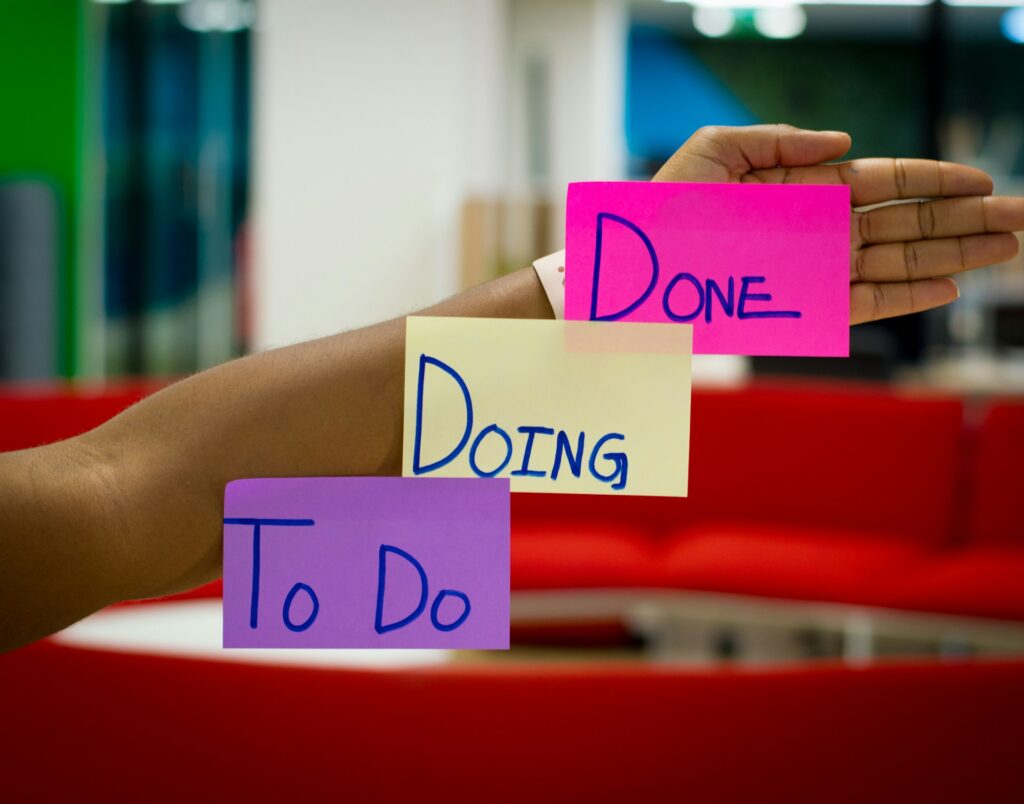Not every task in life sparks excitement. Folding laundry, filing spreadsheets, or sitting through long meetings can feel draining. Yet these tasks are often essential. Rather than dread them, it is possible to rewire the brain to find enjoyment or at least acceptance. Neuroscience has shown that motivation and reward systems in the brain can be trained to shift over time. By applying certain techniques consistently, you can teach your brain to better tolerate and even appreciate the mundane. Here are eight science-backed strategies to help you do just that.
Break Tasks Into Small Wins

The brain is wired to seek progress and reward. When a task feels endless or overwhelming, motivation drops quickly. Breaking it down into smaller parts helps the brain register progress more often. Each completion triggers a dopamine release, which is the chemical associated with pleasure and reward. Instead of viewing a full report or a pile of laundry as one large job, divide it into bite-sized steps. After finishing each section, take a brief moment to recognize the achievement. Over time, this creates positive reinforcement. It transforms a dull task into a series of mini victories, which the brain starts to look forward to.
Pair the Task With a Positive Stimulus

Humans form associations naturally. If a boring task is paired with something enjoyable, it becomes less of a burden. This concept is rooted in classical conditioning, a principle discovered through behavioral psychology. For example, listening to music, chewing flavored gum, or sipping a favorite tea while working on something monotonous can enhance the overall experience. The brain begins to link the task with the pleasant sensation, which reduces resistance over time. Choose sensory pairings that are subtle but uplifting, and use them only when doing specific tasks. This keeps the reward linked to the routine itself and strengthens the connection in the brain.
Reframe the Task With a Purpose

Finding meaning in what seems meaningless changes how the brain views the experience. When the prefrontal cortex, the area involved in planning and reasoning, sees value in an activity, motivation increases. A study of cognitive reappraisal shows that people can shift their emotional response by changing the way they think about a situation. Rather than telling yourself you are stuck doing paperwork, remind yourself how it contributes to a bigger goal, like keeping your job, earning a paycheck, or helping a team function smoothly. Even a small purpose can make a task feel worthwhile. The brain responds more positively when it believes the task matters.
Use the 5-Minute Rule

One of the biggest barriers to starting a boring task is inertial. The longer you delay, the more your brain resists. The 5-minute rule involves telling yourself to do the task for just five minutes. Often, the brain shifts into gear once the task is underway. This taps into the Zeigarnik effect, which refers to the brain’s tendency to remember incomplete tasks more than completed ones. Starting something, even briefly, activates a need to finish. This trick helps override procrastination and can make the activity feel less daunting. Once the task is in motion, it often continues naturally.
Create a Visual Progress Tracker

The brain enjoys visual feedback. Seeing progress reinforces effort and builds momentum. Use a simple checklist, digital timer, or habit tracker to log small completions. This method builds on the principle of reinforcement learning, where the brain learns to repeat actions that lead to reward signals. When you visually mark off each chunk of a task, your brain receives confirmation that the effort is producing results. It is satisfying to watch a list shrink or a bar fill up. Over time, your brain starts associating these markers with success, which makes returning to the task easier each time.
Practice Mindful Attention

Mindfulness helps shift the brain from boredom to curiosity. When practiced regularly, mindfulness increases activity in regions associated with attention and reduces emotional reactivity. Instead of tuning out during a dull task, tune in. Focus on the sensations, movements, and details of what you are doing. If you are washing dishes, notice the temperature of the water and the texture of the sponge. If you are data entering, pay attention to patterns or keystrokes. This helps reframe the task as a present experience rather than a chore to endure. Training your brain to stay present enhances focus and can increase tolerance for boredom.
Reward Yourself After Completion

Delayed gratification strengthens discipline. The brain’s reward center responds strongly to incentives, especially if they are consistent. Promise yourself a break, a treat, or something you enjoy once the task is done. This practice activates the mesolimbic dopamine system, which is responsible for goal-directed behavior. When the brain learns that effort is followed by reward, it begins to anticipate pleasure, even during the task. Over time, this association builds motivation. It is important to keep the reward tied specifically to task completion, not used as a distraction during the activity. This keeps the brain focused on finishing rather than escaping.
Rotate Between Boring and Stimulating Tasks

Mental fatigue builds quickly during monotonous work. Alternating between different types of tasks helps maintain engagement. Cognitive neuroscience suggests that varying mental demands can help prevent burnout and keep motivation stable. If your day includes several repetitive tasks, sandwich them between more stimulating ones. For example, follow a data-entry session with a creative project or a brief walk. This contrast resets the brain’s attention system and makes it easier to return to the less exciting task. Over time, your brain gets better at shifting gears without losing momentum. This technique also helps reduce frustration and keeps the workday balanced.
The bottom Line

Training your brain to enjoy boring tasks is possible, but it requires consistency and strategy. The brain responds to reward, purpose, novelty, and momentum. By applying techniques like breaking tasks down, adding sensory pleasure, using visual cues, and practicing mindfulness, you reshape how your brain reacts to dull work. These methods do not make every task thrilling, but they do make them more tolerable and sometimes even satisfying. When the brain starts to associate boring tasks with progress and reward, resistance fades and productivity grows. You do not need more willpower, just better habits that make the brain work with you instead of against you.
Read More: 6 Popular Wellness Hacks That Could Be Making You Feel Worse
Disclaimer: This article was created with AI assistance and edited by a human for accuracy and clarity.

